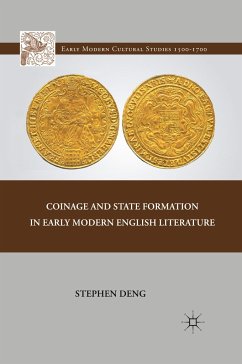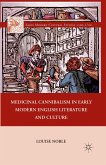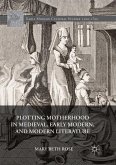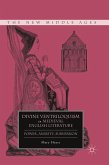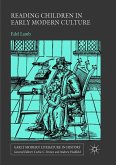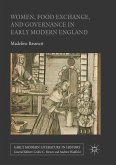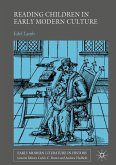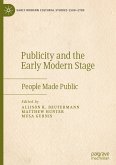A reassessment of the historic relation between money and the state through the lens of early modern English literature, Coinage and State Formation examines the political implications of the monetary form in light of material and visual properties of coins as well as the persistence of both intrinsic and extrinsic theories of value.
"A pertinent and timely intervention in the debate concerning the nature of money in Renaissance England. Through an impressively broad array of literary and cultural readings, Deng clearly establishes the vital role money played in the process of state formation. His insights into the relation between coinage and idolatry, tyranny, and the ethics of representation have obvious repercussions for our own age, and make this book important to anyone concerned about the current state of capitalism. This book is sure to remain influential on literary and economic studies for many years to come." - David Hawkes, Professor of English, Arizona State University
"Deng s book offers a detailed and fresh reappraisal of early modern coinage - what both Shakespeare and Marx call the visible god - as the turnstile through which radically opposed concepts of matter and spirit, economics and religion, and intrinsic and extrinsic value endlessly circulate. Deng s singular contributionis to show how this circulation subtends modern formations of nationhood and sovereignty." - Jonathan Gil Harris, Professor and Director of Graduate Studies Department of English, George Washington University
"Deng s book offers a detailed and fresh reappraisal of early modern coinage - what both Shakespeare and Marx call the visible god - as the turnstile through which radically opposed concepts of matter and spirit, economics and religion, and intrinsic and extrinsic value endlessly circulate. Deng s singular contributionis to show how this circulation subtends modern formations of nationhood and sovereignty." - Jonathan Gil Harris, Professor and Director of Graduate Studies Department of English, George Washington University

